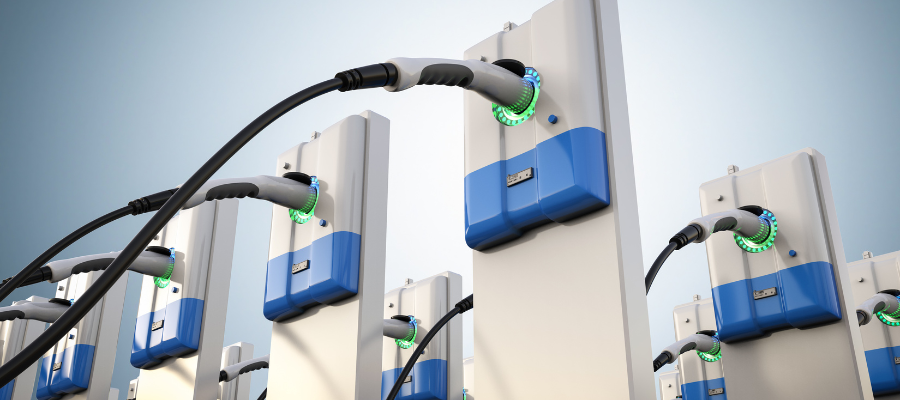🕒 Article read time: 2 minutes
Rollout of EV chargers to be ramped up: consultation launched on planning rights for EV chargers

New measures to support electric vehicle drivers from the government’s Plan for Drivers have been launched, including cash for councils, grants for schools, and new proposals to boost chargepoint numbers.
The government is also delivering the £381 million Local Electric Vehicle Infrastructure (LEVI) Fund to local authorities across the country.
The first capital payments for charging projects have been approved to three local authorities from East Sussex to North Yorkshire, and two London boroughs to support the installation of thousands of new chargers.
Through the government’s LEVI capability funding, almost 100 dedicated EV officers have also been recruited to support chargepoint procurement.
To aid local authorities in building a skilled workforce and delivering their charging projects, the government is also launching the electric vehicle infrastructure (EVI) training course for their officers, which will open to all local authorities from mid-March following a successful trial.
In addition, the government has launched a consultation to look at ways to speed up chargepoint installation across the country. The proposals would give EV chargepoint operators the right to carry out street works using a permit rather than a licence. Permits can be issued much faster, taking days instead of months, and are significantly cheaper to obtain than licences, reducing costs for operators and speeding up the chargepoint rollout for drivers.
While the consultation runs, a new good practice guide has been published by the government to improve consistency in processing licence applications across different areas.
Consultation launched on planning rights for EV chargers
The Department for Levelling Up, Housing and Communities (DLUHC) this week (13 February) launched a new consultation looking at changes to a number of permitted development rights (PDRs), including regulations around electric vehicle (EV) charge points.
Section 5 is likely to be the most relevant to fleet operators, especially those whose drivers take vans home. DLUHC is consulting on several rights changes to give households and businesses more flexibility when installing EV charging outlets, seeking input on whether PDRs should cover equipment housing and storage cabinets for EV charge points.
The consultation will close on 9 April 2024 and more details can be found here.
*www.logistics.org.uk/campaigns
Published On: 15/02/2024 14:00:00

Comments Section
If you are a Logistics UK member login to add comments.
In brief
Methanol bunkering milestone met in South Korea
Ulsan Port has completed its first green methanol ship-to-ship bunkering operation to consolidate its position as a sustainable marine fuelling location.
The operation involved the Ane Maersk, owned by A.P. Moller-Maersk A/S, which received green methanol from the bunkership, Golden Sunny Hana, while in the port.
“Following the success of the world’s first green methanol PTS bunkering for container ships in July last year, Ulsan Port has succeeded in green methanol STS bunkering for a very large container ship,” said Kim Jae-gyun, the president of Ulsan Port Authority.
“We will do our best to proactively respond to the paradigm shift in ship fuel so that Ulsan Port can be reborn as a hub port for sustainable marine fuel supply.”
Latest articles
National Highways launches Too Close for Comfort campaign
It's time to back off and stop intimidating the person driving in front of you.
Read time: 2 minutes
View article
Policy win: Government launches new strategies around growth, infrastructure and trade
Last month, the UK government published the long-awaited Modern Industrial Strategy, Trade Strategy, and Infrastructure Strategy – each setting out intentions, ambitions and next steps for respective policy areas, central to the future of logistics.
Read time: 3 minutes
View article
Generation Logistics Case Study
Grace Brown, Logistics Degree Apprentice - ASDA.
Read time: 2 minutes
View article